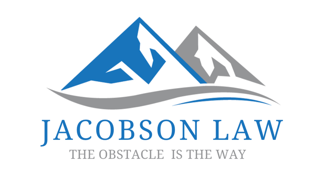A business law firm can help protect your enterprise from legal exposure
Boise’s best business law firm can help avoid legal action against your business. When managing your business finances, one of the terms you’ll frequently encounter is “write-off.” It’s a concept that can significantly impact your bottom line and tax obligations. This article will delve into what it means to “write off” business expenses, how it applies to businesses in Idaho, and what you need to know as a business owner or manager.
What is a Business Expense Write-Off?
A business expense write-off refers to the deduction of legitimate business expenses from your taxable income. Essentially, it allows you to reduce the amount of income that is subject to taxation, which can lower your overall tax liability. This process is governed by tax laws and regulations set by federal and state authorities, including those in Idaho.
Types of Business Expenses That Can Be Written Off
Business expenses that can typically be written off include:
- Operating Expenses: Costs related to running your business, such as rent, utilities, office supplies, and insurance premiums.
- Cost of Goods Sold (COGS): Direct costs associated with producing goods or services, including raw materials and labor costs.
- Business Travel and Meals: Expenses related to business-related travel, accommodations, meals, and entertainment, subject to specific limitations and rules.
- Vehicle Expenses: Costs associated with using a vehicle for business purposes, such as mileage, maintenance, and repairs.
- Salaries and Benefits: Wages, salaries, bonuses, and other compensation paid to employees and contractors.
- Depreciation: The gradual decrease in the value of business assets over time, which can be deducted as an expense.
- Taxes and Licenses: Various taxes and licenses are required to conduct business operations.
Requirements for Deducting Business Expenses
To qualify as deductible business expenses, they must meet certain criteria:
- Ordinary and Necessary: The expense must be considered ordinary (common and accepted in your industry) and necessary (helpful and appropriate for your business).
- Reasonable: The amount deducted must be reasonable in relation to the business activity.
- Properly Documented: You must maintain accurate records, receipts, and documentation to support each expense claimed.
Idaho-Specific Considerations
Idaho has its own tax laws and regulations that govern business expenses and deductions. It’s crucial to be aware of these specific considerations:
- Conformity to Federal Tax Law: Idaho generally conforms to the federal tax laws regarding deductions. However, there may be differences in specific deductions allowed or disallowed.
- State-Specific Deductions: Idaho may offer specific deductions or credits that can affect your taxable income and liabilities.
- Documentation Requirements: Idaho, like federal law, requires accurate and detailed documentation to support business expenses claimed.
Maximizing Business Expense Write-Offs
Understanding how to maximize your business expense write-offs can help you reduce your tax liability and optimize your financial resources. Here are some strategies to consider:
- Keep Detailed Records
Maintain meticulous records of all business expenses, including receipts, invoices, and documentation. This practice not only ensures compliance with tax laws but also facilitates accurate reporting and auditing.
- Separate Personal and Business Expenses
It’s essential to keep personal and business expenses separate. Co-mingling funds can complicate the deduction process and potentially raise red flags during audits.
- Stay Informed About Tax Law Changes
Tax laws can change, affecting what can be deducted and how much. Staying informed about these changes can help you adapt your financial planning and maximize your deductions.
- Utilize Tax-Advantaged Accounts
Consider utilizing tax-advantaged accounts such as Health Savings Accounts (HSAs) or Retirement Accounts (401(k), IRA) to maximize deductions for employee benefits and retirement contributions.
- Work with a Business Lawyer or Tax Professional
Consulting with a business lawyer or tax professional who understands Idaho tax laws and regulations can provide valuable guidance and ensure compliance. They can help you navigate complex tax situations and optimize your deductions.
Common Mistakes to Avoid
While understanding how to maximize your business expense write-offs is essential, it’s equally important to avoid common pitfalls that can lead to audits or missed deductions.
- Failing to Keep Detailed Records
One of the most common mistakes businesses make is failing to keep detailed records of their expenses. Without proper documentation, you may not be able to substantiate your deductions during an audit. Ensure you keep all receipts, invoices, and other documentation organized and easily accessible.
- Mixing Personal and Business Expenses
Another critical mistake is mixing personal and business expenses. This can lead to confusion and make it challenging to accurately determine which expenses are deductible. Maintain separate bank accounts and credit cards for business and personal use to simplify your accounting.
- Overstating Deductions
While maximizing deductions is beneficial, overstating deductions can raise red flags with tax authorities. Ensure that all expenses claimed are legitimate business expenses and are properly substantiated by documentation.
- Ignoring State-Specific Deductions
Idaho may offer specific deductions or credits that can further reduce your tax liability. Be sure to research and take advantage of any state-specific deductions that apply to your business.
How a Business Lawyer Can Help
Navigating the complexities of business expense deductions and tax laws can be daunting. A knowledgeable business lawyer in Idaho can provide invaluable assistance in the following ways:
- Tax Planning: A business lawyer can help you develop tax-efficient strategies to maximize deductions and minimize liabilities.
- Compliance: Ensure that your business is compliant with federal and Idaho tax laws, including proper documentation and reporting.
- Audit Defense: In the event of an audit, a business lawyer can represent you and defend your deductions, ensuring that your rights are protected.
- Legal Advice: Provide legal advice tailored to your business’s specific needs and circumstances, ensuring that you make informed decisions.
In conclusion, understanding how to “write off” business expenses is fundamental to managing your business’s finances effectively. By maximizing legitimate deductions and avoiding common mistakes, you can reduce your tax burden and improve your business’s financial health. Working with a qualified business lawyer or a tax professional in Idaho can provide you with the guidance and expertise needed to navigate complex tax laws and regulations.
Work with Boise’s best business law firm
Jacobson & Jacobson Law Firm, since 1982, is committed to serving the Boise and Nampa, Idaho areas for your top Criminal Defense, Personal Injury, Business Law, Estate Planning, Family Law, Immigration Law, and Litigation needs. Contact us today to get started. For a free 30-minute consultation, book here: https://calendly.com/jfj-1


